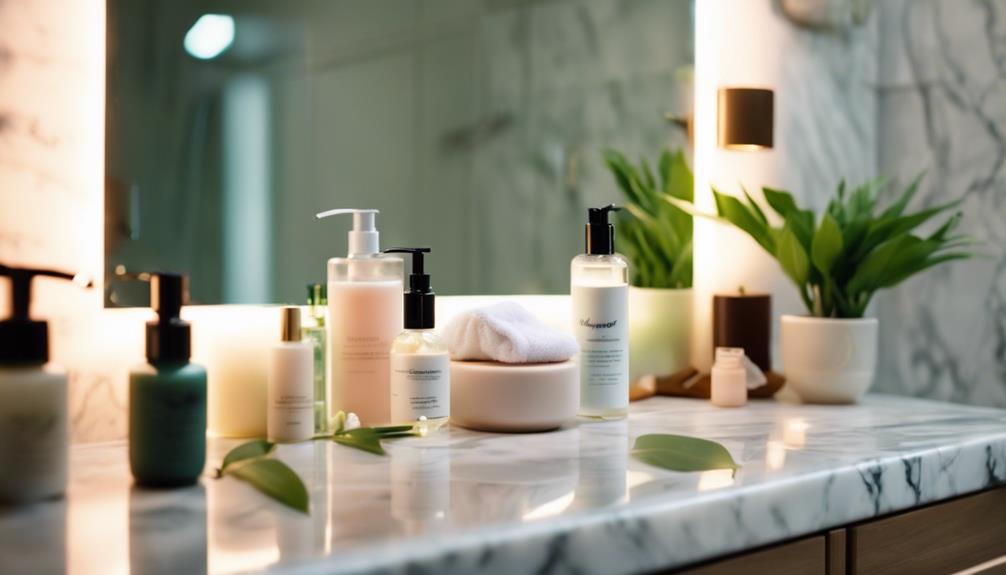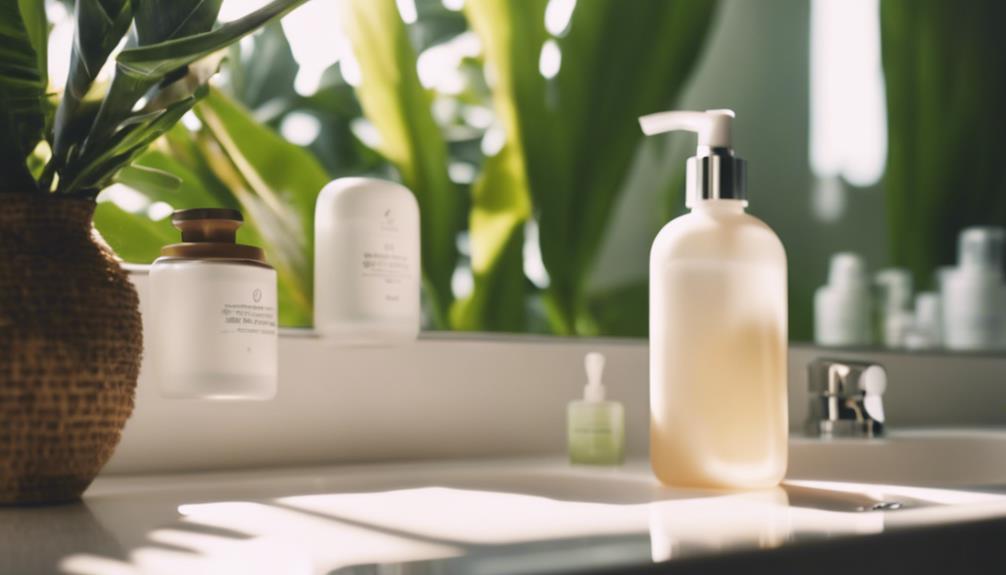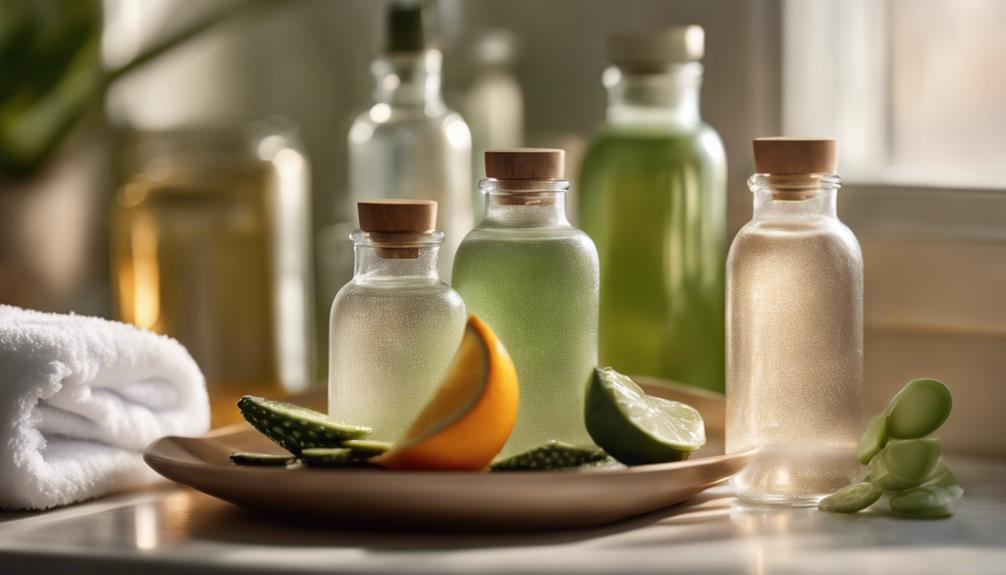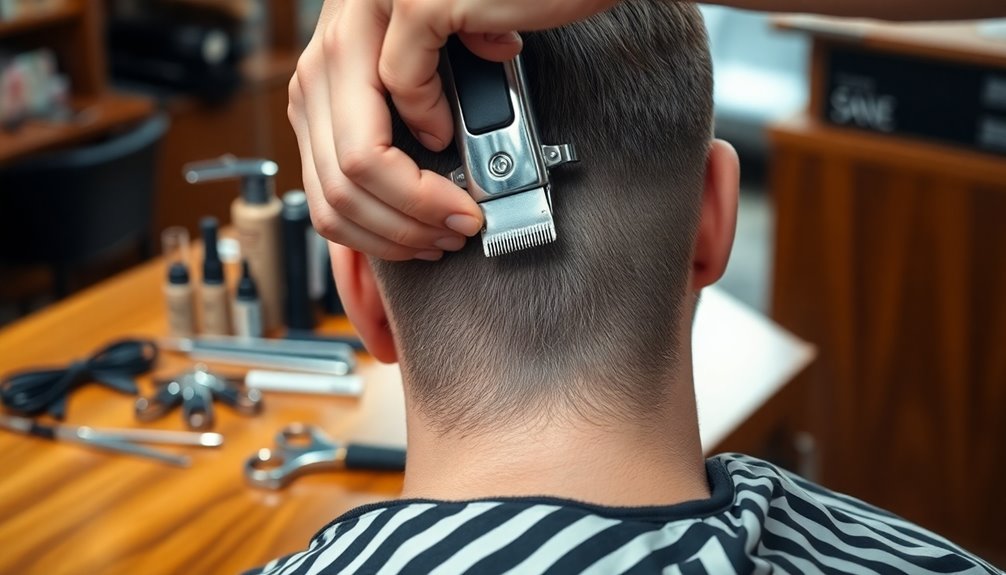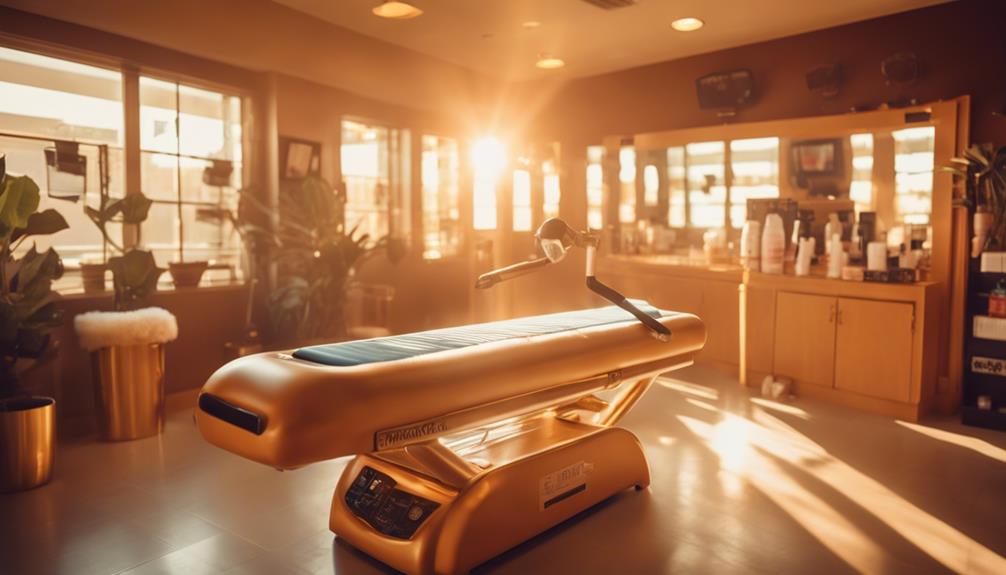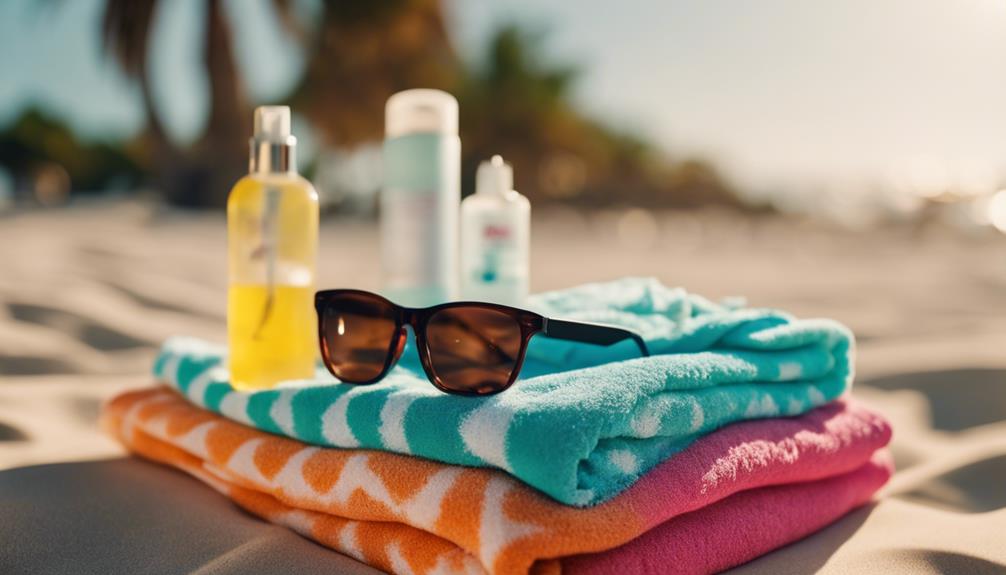To achieve healthy, glowing skin as a teenager, begin with a simple skincare regimen. Wash your face twice a day with a gentle foaming cleanser to get rid of dirt and excess oil. Use a light, non-comedogenic moisturizer to keep your skin hydrated. If you have acne, consider using products with salicylic acid or benzoyl peroxide. Remember to always wear sunscreen, even during the winter, to shield your skin from UV damage. Eat a well-balanced diet that includes plenty of fruits, vegetables, and omega-3s, and seek advice from a dermatologist for personalized recommendations. Stay consistent with your routine, and you’ll soon discover more tips for taking care of your youthful skin.
Key Takeaways
- Establish a consistent skincare routine by cleansing twice daily to remove dirt and excess oil, preventing breakouts.
- Use lightweight, non-comedogenic moisturizers to maintain skin hydration without clogging pores.
- Incorporate active ingredients like salicylic acid or benzoyl peroxide to effectively manage acne.
- Maintain a balanced diet rich in fruits, vegetables, and omega-3s to support overall skin health.
Importance of Skincare
Skincare is essential for teens, as over 85% face acne, which can deeply affect their confidence and social experiences. For teens with acne-prone skin, establishing a consistent skincare routine is imperative. Not only does it help prevent long-term scarring, but it also alleviates emotional distress linked to skin issues.
When you take care of your skin, you're also fostering a sense of responsibility and ownership that can lead to healthier habits in adulthood.
One key aspect of skincare is the early use of sunscreen. By incorporating sunscreen into your daily routine, you greatly reduce the risk of skin damage and skin cancer later in life. Sun protection is crucial, especially during your teenage years when your skin is still developing.
Moreover, consulting with a dermatologist can enhance your skincare journey. They can provide personalized plans and recommend safe products tailored to your unique skin needs.
Embracing the importance of skincare now sets a foundation for healthier skin in the future. So, take those first steps toward a solid skincare routine and watch the positive impact it has on your confidence and overall well-being.
Common Teen Skin Issues
As a teen, you might struggle with hormonal acne breakouts, oily skin, and clogged pores.
These common issues can be frustrating, but understanding their causes is the first step toward effective management.
Let's explore how you can tackle these skin challenges head-on.
Hormonal Acne Breakouts
Hormonal acne breakouts are a common issue for teenagers, affecting about 85% of them due to the surge in oil production from hormonal changes during puberty. As your androgen levels rise, you may notice breakouts primarily on your face, chest, shoulders, and upper back, where your sebaceous glands are most active.
This type of acne can manifest as whiteheads, blackheads, papules, pustules, nodules, or cysts. While the milder forms can often be managed with a consistent skincare routine, the more severe types might need a dermatologist's attention.
To tackle hormonal acne, focus on incorporating effective active ingredients into your routine. Look for topical treatments containing benzoyl peroxide or salicylic acid, which help reduce inflammation and unclog pores.
Don't forget that factors like stress, diet, and environmental influences can worsen breakouts. Maintaining a balanced lifestyle alongside your skincare routine can greatly improve your skin's condition.
Oily Skin Management
Managing oily skin during your teen years is essential for preventing breakouts and maintaining a clear complexion. Oily skin is often caused by hormonal changes during puberty, which can lead to increased sebum production and a higher likelihood of acne. To effectively manage this issue, establish a consistent skincare routine that targets excess oil.
Start by cleansing your face twice daily with a gentle foaming or salicylic acid-based cleanser. This helps reduce oiliness and prevents acne flare-ups. Look for non-comedogenic products, including gel-based cleansers and lightweight moisturizers, to avoid clogging your pores.
Incorporate exfoliation 1-2 times a week to remove dead skin cells and excess oil, promoting clearer skin. This step is vital for preventing breakouts, as it keeps your skin fresh and helps maintain balance.
If you do experience breakouts, consider using targeted acne treatments containing benzoyl peroxide or salicylic acid to help reduce inflammation and clear existing blemishes.
Clogged Pores Prevention
Clogged pores are a common problem for teens, often resulting from excess oil and dead skin buildup that can lead to breakouts.
To prevent this issue, it's vital to establish a consistent skincare routine. Start by cleansing your face twice daily with a gentle cleanser to remove dirt, oil, and impurities. This helps keep your pores clear and reduces the chances of them becoming clogged.
Exfoliating 1-2 times a week is also important. It effectively removes dead skin cells, promoting cell turnover and greatly lowering the likelihood of blockages in your pores. Look for exfoliants that suit your skin type and avoid over-exfoliating, as this can irritate your skin.
Additionally, choose non-comedogenic products for your skincare and makeup. These products are formulated specifically to prevent clogged pores, allowing your skin to breathe while reducing the risk of breakouts.
Don't forget to moisturize and apply sunscreen daily; this balances oil production and protects your skin from environmental factors.
Establishing a Skincare Routine

Establishing a consistent skincare routine is vital for maintaining healthy skin during your teenage years. Start with cleansing your face twice daily—once in the morning and once at night. This helps remove dirt and excess oil, which can prevent breakouts. Be sure to wash your face after sweating as well, especially after physical activities.
After cleansing, it's important to moisturize your skin. Even if you have oily skin, using a lightweight, non-comedogenic moisturizer can keep your skin hydrated without clogging pores. This step is significant for maintaining your skin's balance and preventing dryness, which can lead to more oil production.
Product Selection and Application
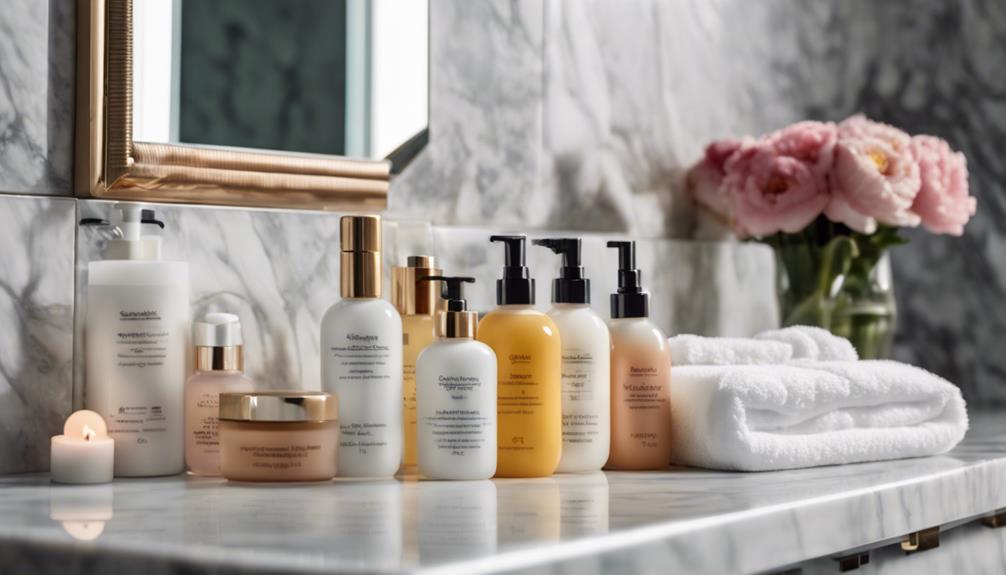
Choosing the right skincare products is key to enhancing the routine you've already established. Your product selection can make a significant difference in how your skin looks and feels. Here are some important tips to keep in mind:
- Opt for oil-free and non-comedogenic products: This helps prevent clogged pores, particularly if you have acne-prone skin.
- Look for active ingredients: Salicylic acid is great for mild acne, while benzoyl peroxide is better for more severe breakouts. Introduce these gradually to minimize irritation.
Always patch test new products for 7-10 days on a small area of skin to catch any adverse reactions before fully incorporating them into your routine.
Reading product labels is also essential—understanding ingredients like hyaluronic acid for hydration and ceramides for strengthening your skin barrier can empower your skincare choices.
Diet and Skin Health
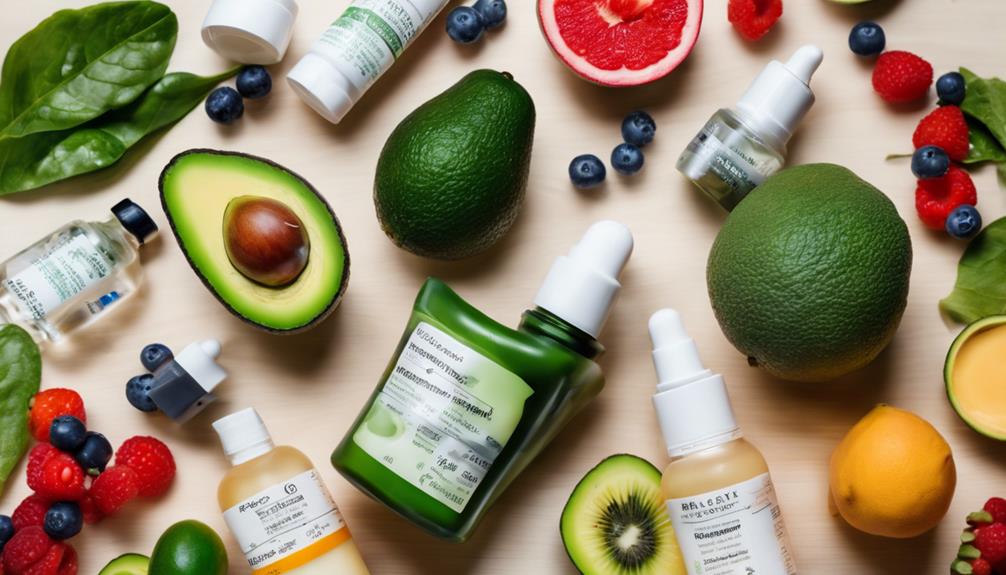
What you eat can profoundly impact your skin's health, so incorporating a balanced diet is essential for achieving that radiant complexion. A diet high in refined sugars can worsen acne by raising insulin levels, which stimulates oil production in your skin. Instead, focus on consuming fresh fruits and vegetables rich in vitamins A, C, and E. These antioxidants help combat free radicals and promote healthy skin.
Don't forget about omega-3 fatty acids found in fish and flaxseeds. They can reduce inflammation and improve skin health, making them a great addition to your diet if you're prone to acne. Staying hydrated is equally important; drinking plenty of water supports skin elasticity and moisture, helping to prevent dryness and promote a clearer complexion.
Here's a quick look at some foods to examine for better skin health:
| Food Type | Benefits |
|---|---|
| Fresh Fruits | Rich in vitamins & antioxidants |
| Leafy Greens | High in nutrients & hydration |
| Fish | Contains omega-3 fatty acids |
| Nuts & Seeds | Provide essential fatty acids |
| Whole Grains | Low glycemic index, reduce acne |
Embrace these dietary changes for healthier skin!
Professional Guidance and Resources
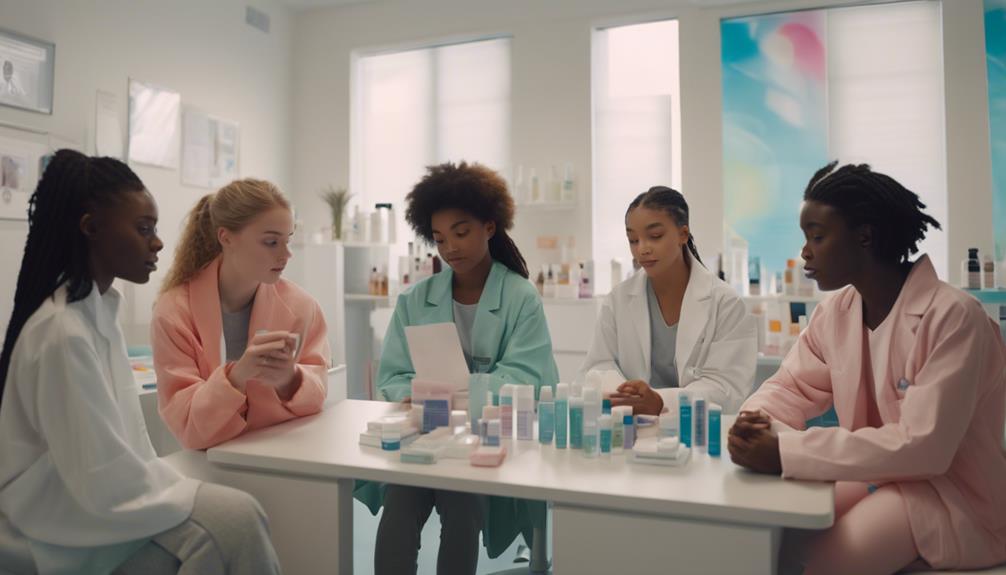
Seeking guidance from skincare professionals can greatly enhance your understanding of how to care for your unique skin needs. Consulting with a dermatologist is essential for developing personalized treatment plans that effectively address your specific concerns, such as acne or dryness. Regular check-ups allow professionals to monitor your skin health and recommend the right products, ensuring you stay on track.
In addition to professional consultations, consider exploring various educational resources to deepen your knowledge:
- Online Platforms: Websites and forums provide expert advice and the latest skincare trends tailored for teens.
- Community Workshops: Local events can offer hands-on learning experiences and the chance to ask questions directly to professionals.
Understanding common skin conditions through professional guidance empowers you to make informed decisions about your skincare routine.
With the right support and resources, you can achieve healthy, glowing skin that boosts your confidence and well-being.
Emotional Impact of Skin Problems

Many teenagers find that skin problems, like acne, can greatly affect their self-esteem and emotional well-being. The struggle with visible skin issues often leads to anxiety, social withdrawal, and a diminished sense of self-worth. It's crucial to recognize how these challenges can impact your confidence and mental health.
Here's a quick overview of how skin problems can affect you:
| Impact | Description | Emotional Response |
|---|---|---|
| Self-Esteem | Acne can lower your self-image | Feelings of inadequacy |
| Social Interactions | You might avoid social situations | Isolation and loneliness |
| Mental Health | Increased anxiety and stress | Heightened emotional distress |
| Confidence | Positive skincare can boost self-assurance | Enhanced feelings of control |
| Support System | Encouragement from friends and family | Improved emotional resilience |
Taking ownership of a skincare routine not only helps improve your skin but can also empower you, fostering a sense of responsibility. Remember, you're not alone in this journey. Open discussions about skin health can support your emotional well-being and enhance your confidence.
Seasonal Skin Care Adjustments
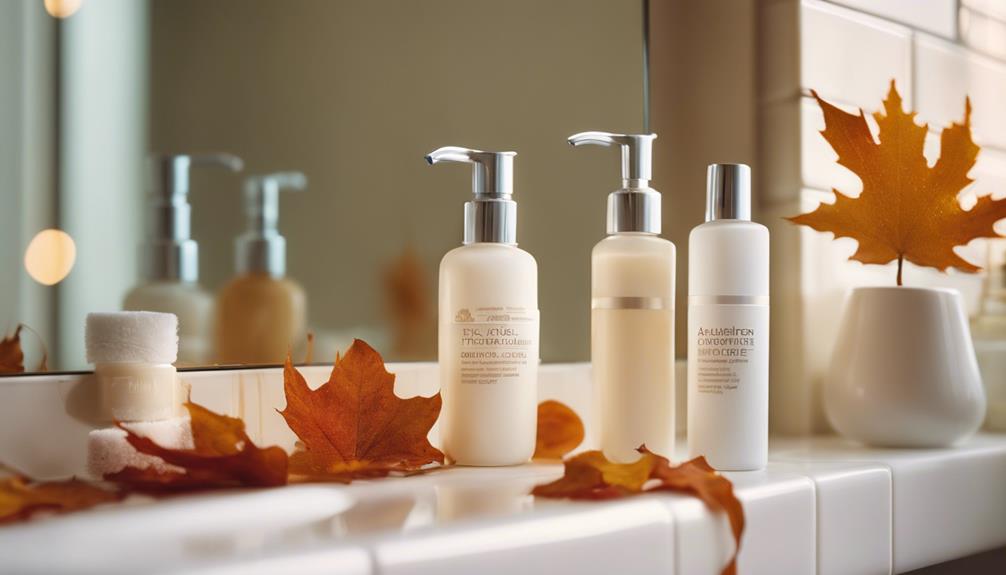
As the seasons change, your skincare routine needs to adapt too.
In winter, heavier moisturizers can help lock in moisture, while summer calls for stronger sunscreen to shield your skin from harmful UV rays.
Plus, humidity can influence how oily your skin feels, so choosing the right products is key to keeping your complexion balanced.
Winter Moisturizer Recommendations
How can you keep your skin hydrated during the harsh winter months? The key is to choose the right winter moisturizers that contain hydrating ingredients. These products help replenish moisture and protect your skin barrier from the cold, dry air.
Here are three recommendations to take into account:
- CeraVe Moisturizing Cream: This cream is packed with ceramides and hyaluronic acid, delivering deep hydration and restoring your skin barrier.
- Vanicream Daily Facial Moisturizer: Perfect for sensitive skin types, this moisturizer provides essential hydration without irritating your skin.
When applying your moisturizer, do it on damp skin to enhance absorption and effectiveness. This helps lock in moisture after cleansing or showering.
Remember, even if your skin seems less oily in winter, maintaining a consistent moisturizing routine is vital. It'll help prevent irritation and reduce the risk of breakouts.
Stay hydrated and keep your skin glowing all winter long!
Summer Sunscreen Strategies
Protecting your skin from harmful UV rays during summer is important for maintaining its health and preventing long-term damage. To guarantee you're effectively protecting the skin, apply a broad-spectrum sunscreen with at least SPF 30 or higher before heading outdoors. This helps shield you from UV rays that can lead to skin cancer later in life.
Remember to reapply sunscreen every two hours, or more frequently if you're swimming or sweating. This continuous protection is essential for keeping your skin safe throughout the day.
Choosing lightweight, non-comedogenic sunscreens can also help prevent clogged pores and breakouts, which is especially important in the summer heat. For added effectiveness, consider mineral-based sunscreens containing zinc oxide or titanium dioxide. These options provide solid protection and are less likely to irritate sensitive skin.
Incorporating sun protection into your daily routine year-round is crucial; consistent sunscreen use promotes long-term skin health and reduces inflammation associated with sun exposure.
Humidity and Oily Skin
Humidity can wreak havoc on your skin, making it oilier and more prone to breakouts during the summer months. To combat this, you need to adjust your skincare routine to effectively manage oily skin in humid conditions. Here are some tips to keep in mind:
- Use lightweight, oil-free moisturizers to maintain hydration without adding extra oil.
- Incorporate non-comedogenic and mattifying products to help minimize shine while preventing clogged pores.
Regular exfoliation is also essential. Aim to exfoliate 1-2 times a week to eliminate dead skin cells and prevent buildup that leads to breakouts.
What Are Some Essential Tips for Teen Skincare?
Are you a teen looking to improve your skin? Following a consistent skincare routine tips for teens is essential. Start by cleansing your face twice a day, using sunscreen daily, and choosing products that are non-comedogenic. Don’t forget to drink plenty of water and maintain a healthy diet for glowing skin.
Conclusion
Taking care of your skin now sets the foundation for a lifetime of healthy skin.
Remember, 'an ounce of prevention is worth a pound of cure.'
By following a consistent skincare routine, choosing the right products, and maintaining a balanced diet, you can tackle common teen skin issues head-on.
Don't hesitate to seek professional advice if needed, and always be kind to yourself.
Your skin reflects your journey, so embrace it with confidence!
